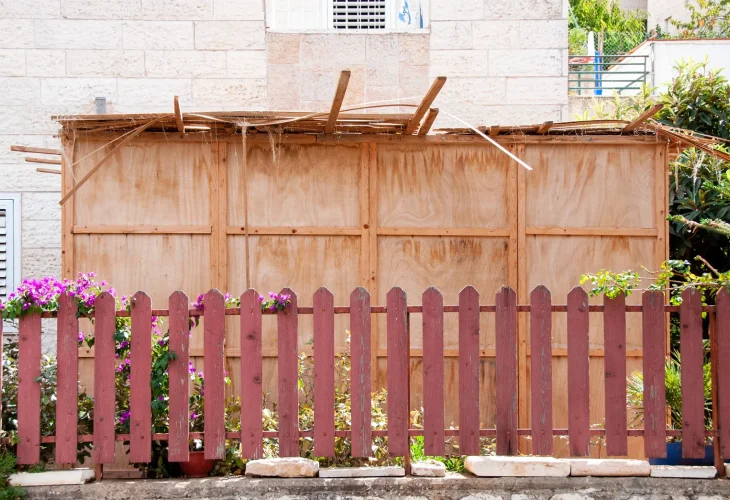Jewish Holidays & Festivals
Rabbi Eliezer Papo and the Hidden Light of Sukkot
Author of the beloved Pele Yoetz, Rabbi Papo’s powerful teachings reveal the depth of joy, holiness, and responsibility during the festival of Sukkot
 (Photo: shutterstock)
(Photo: shutterstock)A Brief Life, an Enduring Legacy
Rabbi Eliezer Papo (1786–1827) was a Sephardic rabbi, kabbalist, and halachic (Jewish legal) authority who served as the rabbi of Silistra, in present-day Bulgaria. Despite passing away at the young age of 41, he left behind a spiritual legacy that continues to inspire Jews nearly two centuries later.
He is best known for his ethical masterpiece Pele Yoetz, a popular work of mussar (Jewish ethical guidance) organized alphabetically by topic. In addition to Pele Yoetz, Rabbi Papo authored other important works, including Elef HaMagen, Orach Chaim, Orot Ilim, Yalezu Chassidim, Dan Yadin, and Beit Tefillah.
Rabbi Papo passed away on the 20th of Tishrei (during Chol HaMoed Sukkot) in the year 1827. In his final year, he fell seriously ill and was given the additional name Yechezkel. Despite his illness, his prayers for the Jewish people remained heartfelt and universal. Each day he would plead, “May it be Your will, Hashem... to have mercy on every man and woman, young and old, of Your people Israel.”
Although he deeply desired to move to the Land of Israel, his illness prevented him from fulfilling that dream.
Ten Insights on the Festival of Sukkot from Pele Yoetz
In his writings, Rabbi Papo devotes a full chapter to the mitzvah of sukkah. Here are ten powerful teachings from that section:
The Importance of the Sukkah
“The sukkah is a precious and beloved mitzvah (Divine commandment). Fortunate are the Jewish people, most of whom are careful to build beautiful sukkot and adorn them with fine decorations.”The Sukkah’s Sanctity
“This mitzvah is beloved both on a revealed and mystical level. It serves as atonement in place of exile. According to kabbalah, the Divine Presence spreads its wings over us, the Shechinah rests upon the people, and the seven exalted ushpizin (spiritual guests) dwell within it. For this reason, its sanctity is as great as that of a synagogue, and one must not act disrespectfully or treat it lightly.”Respect Within the Sukkah
“It is said of the holy Arizal that he was careful not to speak mundane words inside the sukkah.”Spiritual Impact All Year Round
“One who lives in the sukkah for all seven days with holiness, awe, and great joy acquires increased spiritual light in his soul, spirit, and soul-root, and sets himself up for success in his service of Hashem for the entire year.”The Depth of the Festival’s Mitzvot
“Other mitzvot accompany the festival, like the shaking of the lulav during the blessing, Hallel, and Hoshanot. These things are critical, yet many treat them lightly. The shaking is actually the essence of the mitzvah.”A Joyful Heart Brings Blessing
“The Ari’s disciples wrote that whoever rejoices fully and without sorrow during Sukkot is promised a good year. This joy should come from deep awareness of how much Hashem loves us, that He gave us the High Holidays for forgiveness, and Sukkot as a time of joy and reward. One who forgets their worries and rejoices in each day of the festival brings blessing to their entire year.”Joy in Heaven Through Our Actions
“Happy is the one who realizes the effect of his actions in the heavens above. He should sing and give praise with a full heart, remembering that in the time of the Temple, the righteous would celebrate the Simchat Beit HaShoeva with such intensity that it brought down Divine inspiration.”Including the Poor in Our Joy
“Rejoicing in the festival must include the poor. Even if one cannot host guests, he should donate to charity before each meal, explicitly stating that he is giving in honor of the ushpizin. Doing so brings great blessing.”The Sanctity of Chol HaMoed
“Our sages taught that one who degrades Chol HaMoed (the intermediate days of the festival) forfeits their share in the World to Come. Many mistakenly treat it like a weekday, when in truth, it demands reverence. One must study the laws of permissible and forbidden labor to avoid transgressions.”Time to Learn Torah and Elevate Judgment
“Shabbat and holidays were given to the Jewish people to engage in Torah study. One who does not use their free time for Torah, even if normally burdened by earning a living, misses the opportunity to elevate their soul. Chol HaMoed is a time of judgment: Pesach is for grain, Sukkot is for water, and Hoshana Rabbah is the final verdict. A person should make sure to add at least one extra mitzvah during this time.”
Rabbi Eliezer Papo’s words are not only poetic, they are weighty. Through his teachings, we see how Sukkot offers a rare opportunity for joy, spiritual clarity, and personal transformation. May his insights inspire us to passionately embrace the mitzvot of this holy time.

